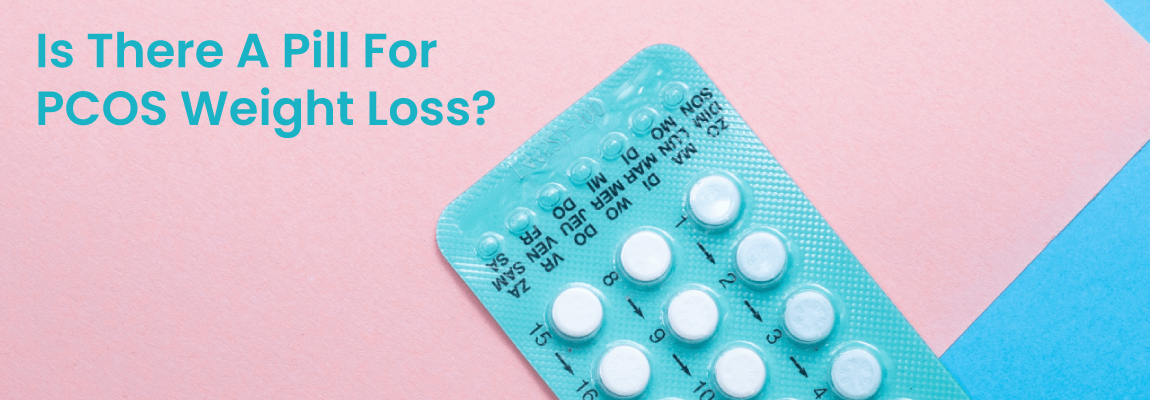
Polycystic ovary syndrome (PCOS) is a hormonal imbalance disorder that causes enlargement of ovaries with small cysts on their outer edges. It can cause symptoms like missed or irregular menstrual periods, excess hair growth, infertility, and weight gain.
Impact of PCOS on weight
PCOS interrupts with how your body uses insulin, causing the pancreas to make more of it. This extra insulin can lead to weight gain by making you hungrier and storing more fat. PCOS can also throw off the hormones that control hunger.
It’s tough for people with PCOS to keep their weight in check. Whether you need to maintain a healthy weight or lose some pounds, it can be a challenge. Even a small weight loss can be really helpful for women with PCOS who are overweight. Losing weight can improve how your ovaries work and help balance your hormones, making your symptoms better.
Researchers have looked into the connection between PCOS and obesity, but it’s not clear if PCOS causes obesity or if being obese can lead to PCOS. Studies suggest that both conditions can make each other worse. The insulin resistance and high levels of male hormones linked to PCOS may cause weight gain. And being obese can make reproductive problems worse in women with PCOS.
When to consult a PCOS specialist?
You should consult a gynecologist or an endocrinologist if you have Polycystic Ovary Syndrome (PCOS). Symptoms include no periods, irregular periods, or very long periods. You may also have one or more of these symptoms: acne, hair growth on the face, and other parts of the body.
Current Treatment Options
To check if you have PCOS, the doctor will ask about your symptoms, do some lab tests, and give you a physical exam. They might also do a vaginal ultrasound to get a better look at your ovaries and uterus. There’s no single test for PCOS, so your doctor will talk to you about your symptoms, medications, and medical history. They may also ask about your menstrual periods and any weight changes. The doctor will look for signs of excess hair growth, insulin resistance, and acne during the physical exam.
Polycystic ovary syndrome (PCOS) can’t be cured, but its symptoms can be managed. Treatment options can vary depending on the symptoms a person experiences. Medications and lifestyle changes can help lessen the effects of the condition, such as weight changes.
A. Medications to Lose Weight with PCOS
Many women with PCOS are overweight or obese, and PCOS makes it hard for them to lose weight. Some women may use medication to help with weight loss.
- Metformin
PCOS patients are at a higher risk of prediabetes progressing to type 2 diabetes. Metformin can address insulin resistance, facilitate weight loss, and is affordable, with minimal side effects. It can also support ovulation in those with PCOS-related anovulation.
- Contrave
Contrave is a pill approved by the FDA to help with weight loss. It works by making you less hungry and reducing your cravings. If you’re using Contrave to lose weight, you should also eat less and exercise regularly.
- Xenical
Xenical prevents the body from absorbing some of the fat from food. It is used to help people lose weight or prevent them from gaining back the weight they have already lost. Xenical should be used along with a low-calorie diet to manage obesity, lose weight, and maintain a healthy weight.
- Zepbound
Zepbound is an injectable prescription medicine that can help adults who are obese or overweight and have weight-related medical issues to lose weight and maintain it. It should be used along with a lower-calorie diet and more physical activity.
B. Lifestyle Changes to Manage Weight with PCOS
Dealing with weight can be tough with PCOS. When diagnosed with polycystic ovary syndrome, lifestyle changes can help maintain the weight.
- Weight Management
To lose weight, a PCOS specialist can assist you in making a healthy diet that is low in fat and calories. They can teach you how to monitor what you eat by writing it down or using tools to count calories. It’s also important to pay attention to portion sizes to help with weight loss.
- Eating a Healthy Diet
To control insulin levels and support overall health, eat smaller portions of complex carbs, lean protein, healthy fats, and high-fiber foods. Limit processed foods and added sugar intake to no more than 24 grams per day. Include fruits, veggies, whole grains, and beans in your diet to regulate blood sugar levels.
- Frequent Exercise
Regular exercise, such as 30 minutes of moderate activity 5 days a week, can help with weight loss and improve insulin sensitivity in individuals with PCOS. It may also lower blood sugar levels, combat obesity, and reduce the risk of developing diabetes. Exercise options include daily walks, high-intensity interval training (HIIT), and stress-relieving activities like yoga and pilates.
- Stress Management and Enough Sleep
Sleep is really important for your health. If you have PCOS, you might have trouble sleeping and feel tired during the day. Not getting enough sleep can make you feel hungrier and could lead to weight gain. Additionally, stress can also make it easier to gain weight. Cutting down on stress might help you manage your weight better.